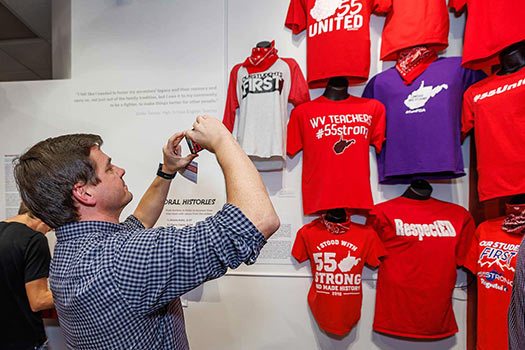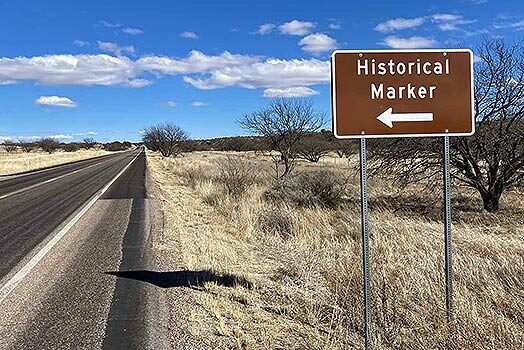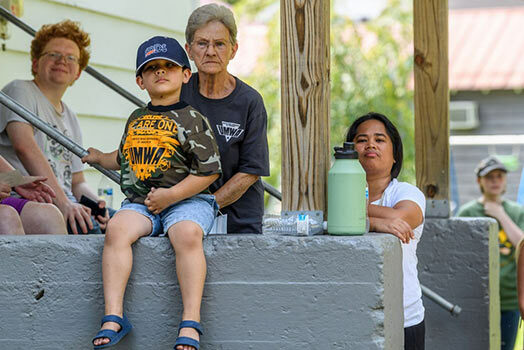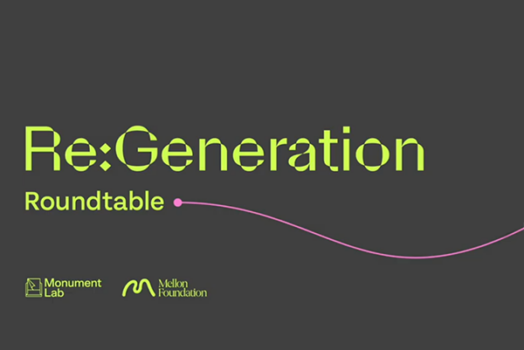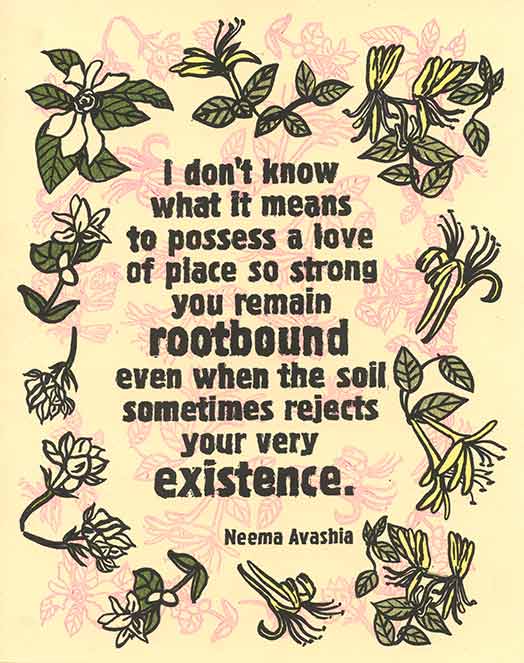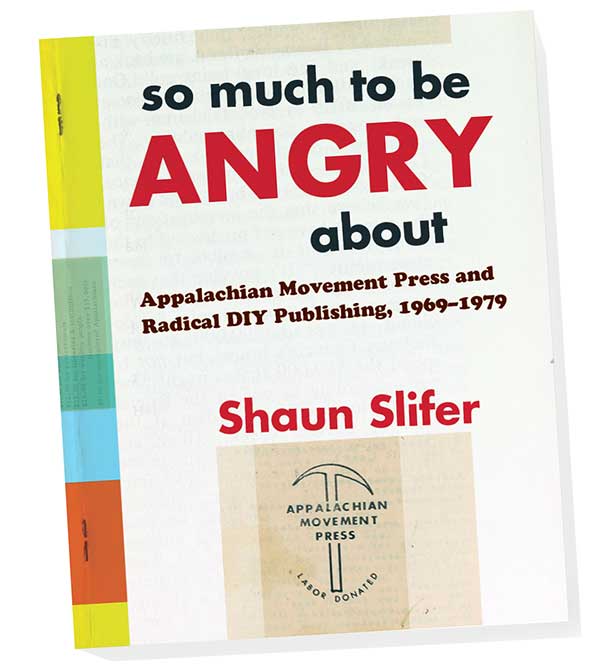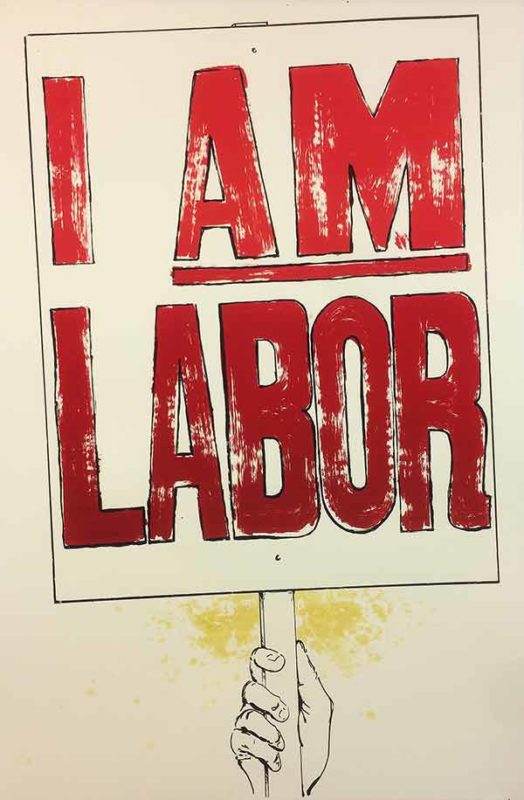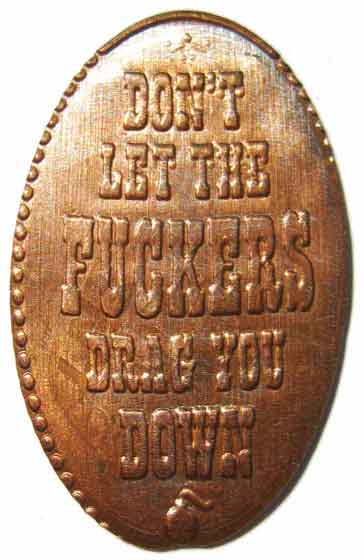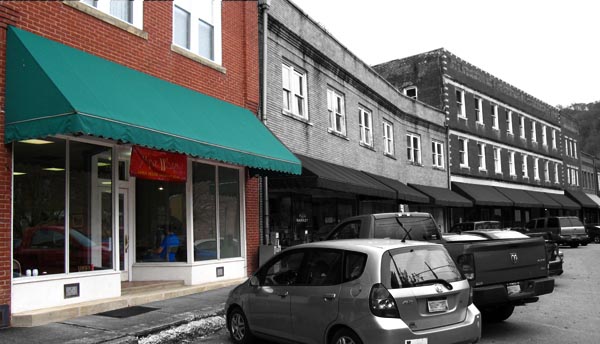
Since this past spring, I’ve been honored to be working with a group of folks down in Southern West Virginia to launch an exciting people’s history project: The West Virginia Mine Wars Museum. We’re working on a building right in the middle of Matewan, WV (subject of John Sayles’ eponymous 1987 film), and on November 8 we had our first community open house! We invited folks from the area to come down, check out what we’re doing, tell stories and commune, provide direct input on our goals, and (importantly) eat barbecue…
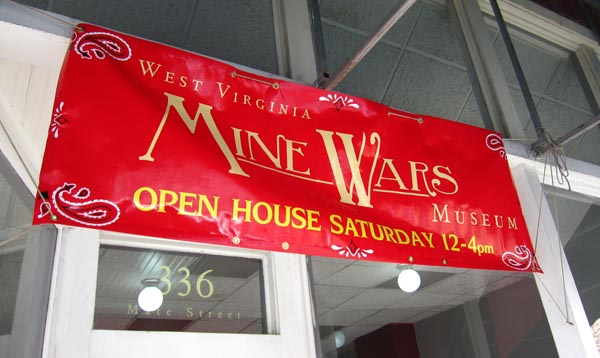
Southern West Virginia is in the heart of historic coal country. The industrial colonization of the region for resource extraction began before 1912, but April of that year saw the first of many violent conflicts between mine owners, private police, and striking miners and families: The Paint Creek/Cabin Creek Strikes. The locus of this battle, and those that followed it, was a drive to unionize the various coal fields of Southern West Virginia. But the larger struggle is better characterized as a pitched battle for social justice and basic human rights for families working in the coal industry in the region. This era of oft-violent confrontations would later be called the “Mine Wars”, culminating in the Battle of Blair Mountain (1921), the largest armed rebellion on U.S. soil since the Civil War.
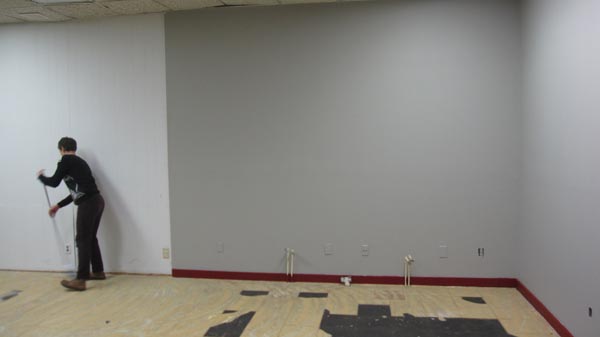
In fall of 2013, a group of area residents, including local avocational archaeologist Kenny King, UMWA union coal miners, academic historians, and community organizers formed the West Virginia Mine Wars Museum. The group secured a building in Matewan, site of the 1920 Matewan Shootout, or “Massacre” (which happened right outside our back door), in which to build a permanent museum with didactic exhibitions, to open in May, 2015. Soon after, I was invited into the fold – originally I had just offered to do some design work and come down for work days on the building, but now I’m deep in the process of helping design the space itself, acquiring artifacts, set the tone for the exhibitions, and a whole mess of other details! I’m proud to be working with this group, and proud of what we’re doing. It’s taken a load of work from each of us just to get to this point, and we’ve got even more in front of us to accomplish before this upcoming May! Just getting the space cleaned up and painted for this event took a ton of work (extra thanks to Cat, Katie and Terry!).
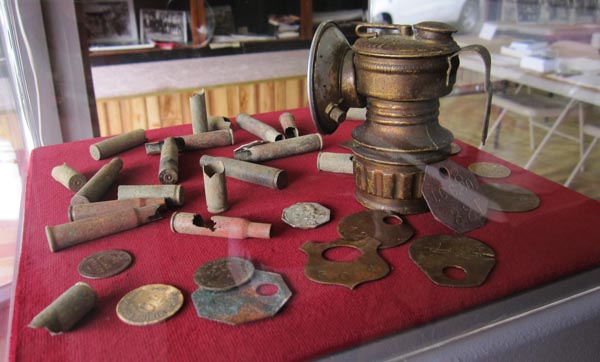
Here’s a small case of artifacts from Kenny King’s collection which I arranged for the event. Kenny is a self-taught archeologist of sorts, and he’s been scouring Blair Mountain and the surrounding areas for years picking up anything he finds from the past. He also buys a lot of photographs and printed matter on eBay, the kind of stuff you can’t find buried on a mountainside. Kenny’s collection makes up the foundation of the Mine Wars Museum collection at this early point. Here we have a lantern, check tags and coal company scrip, and spent machine gun bullet casings from the Battle of Blair Mountain. Tools of the trade, essentially. “Scrip” was the money miners were paid by the companies they mined for, redeemable only at company-run stores (which were, naturally, the only stores in many towns where residents could buy goods). Check tags were used by individual miners to identify the carts of coal they had loaded as they rolled out of the mines to be weighed. The bullet casings probably need little explanation, suffice to say that automatic weapons (unless stolen) were used by mine owners and their hired thugs to keep everything in order.
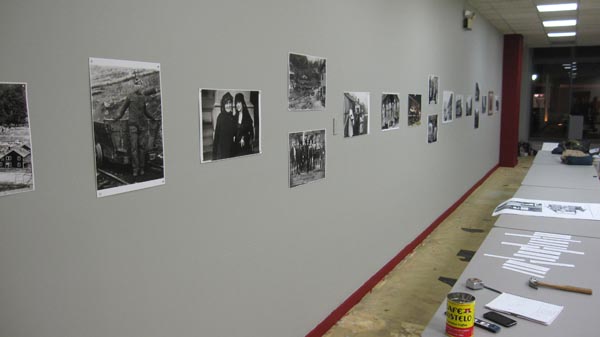
Kenny and Chuck Keeney selected about twenty photo reproductions from Kenny’s collection and wrote up captions for each. The night before the open house, I hung them all in a simple row, so folks could see a sample of the imagery we’ll be presenting in the completed museum.
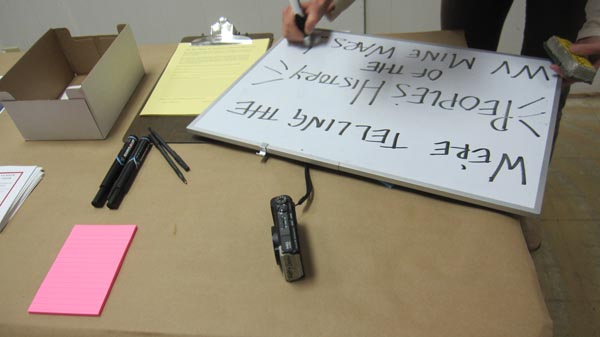

I didn’t really get any photos that captured the energy of the day, or the number of people who showed up…
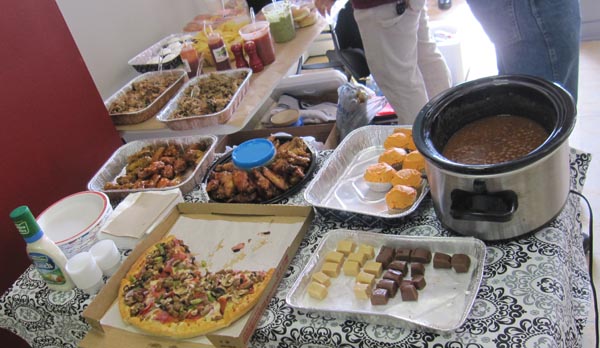
…but we had plenty of barbecue to go around from local joint Wingo’s, enough chips and salsa to feed us for days from Mi Pueblito, and some donated cupcakes which, I kid you not, were filled with frosting! They were basically 85% frosting. Obviously a hit. Also, Hawkeye brought a pizza to round out the feast.

One of the most exciting parts of the Open House was the carpet selection station! We’re totally re-carpeting the place, and we asked for community input on styles and colors! We set out three very different, really colorful options for folks to sift through. It was a tough contest, and the ballots are still out as I write this.
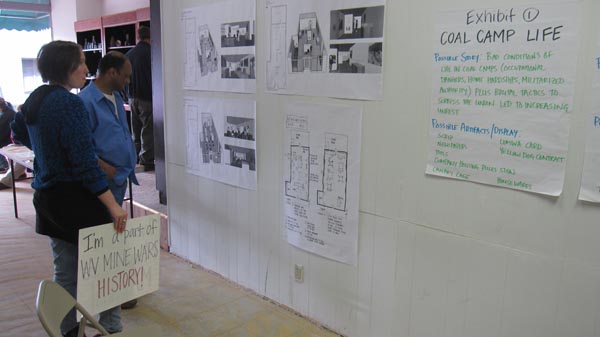
We have already received a lot of crucial support from the community, particularly from the United Mine Workers (UMWA) Local 1440, District 17. We’ve also received funding from the West Virginia Council for the Humanities, the National Coal Heritage Area Authority, and Turn This Town Around/West Virginia Focus (from which we received a grant to take care of some immediate structural repairs on the building).
We’ve got a website in the works, and we’ll be doing a Kickstarter drive later this winter. Stay tuned!
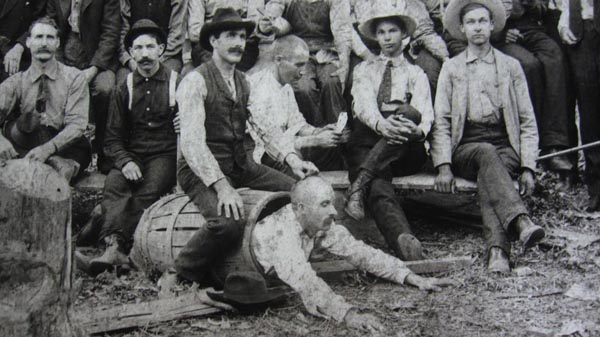
detail from a photo, labeled “Kirkbrides Camp No.8, Tug R.(iver) W.V. July 1905”
